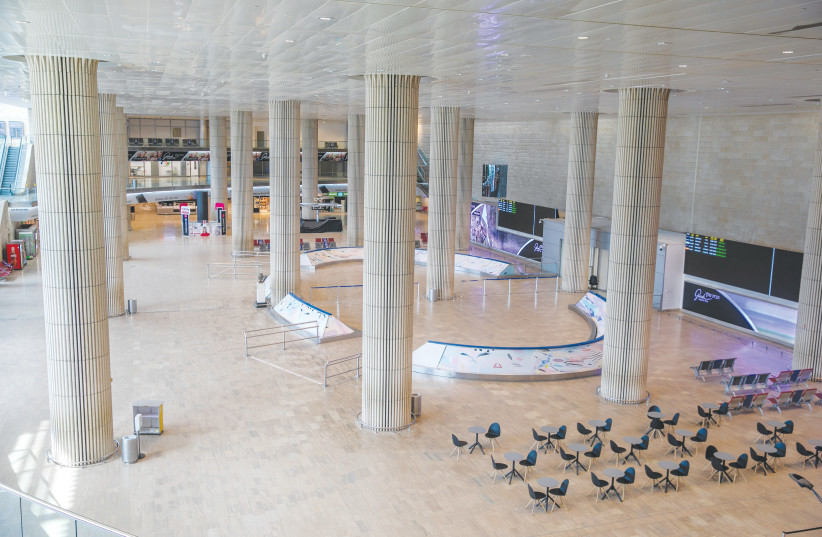The seemingly never-ending COVID crisis has generated an avalanche of reactions from virtually everyone in the world, civilized or non.
The scientists and medical experts are struggling to stay one step ahead of the beast and contain it. The politicians are trying to figure out how to manage it and still keep their positions of power intact. The business community is drastically reinventing itself to stay solvent. The spiritualists are contemplating the cosmic reasons for the pandemic having descended upon us, while the anti-vaxxers are busy concocting continuous conspiracy theories. And average citizens are trying just to stay healthy and somehow comprehend the government’s latest regulations that suddenly come flying at us like bats out of a cave (oops, bad analogy!).
Always the contrarian, I have learned how to love the lockdowns. At first, I admit, it was indeed frightening and oh so constraining. Couldn’t move more than 100 meters from home; food had to be washed down, clothes cleaned or burned (that may be an exaggeration) and more-than-subtle hints that life as we know it had ended. We started stockpiling food, batteries and magazines, and we said our goodbyes to distant relatives, just in case the phone lines and cell towers went down.
But slowly, as we moved our center of balance inward, we discovered a whole new world that had been all but forgotten. We began to appreciate our family more intensely, for as we agonized over those who had tragically succumbed to the disease, we understood in a very real way that life is short and must never be taken for granted.
Because so many places of entertainment had closed, we learned how to entertain ourselves by being creative. We read more because we had the time. I wrote more because I had the urge. We cooked for ourselves, and experimented with new dishes and diets, at the same time creating our own workout regimens to avoid the dreaded corona calorie curse. As travel stopped and the borders shrunk, we learned new ways to expand our horizons.

But the greatest joy came on Shabbat and holidays. Once the clock stopped, the serenity started. With synagogues on hold, we could finally devote the time we always lacked to appreciate what we were doing. We prayed at our leisure – each of us taking turns being the hazan – and actually paused to think about the words we were saying, without fear of falling hopelessly behind the congregation as it hurried toward some artificial time limit.
We discussed the weekly Torah portion at length, uncovering countless new insights and lessons that we had somehow missed in the decades before. On Seder night, we sang the songs of the haggadah – each in the tune we grew up with, rather than splitting the different versions – and we discussed the story of the Exodus until the wee hours of the morning, just as the rabbis of the hagaddah famously did. Why rush, after all – we weren’t getting up early the next day!
Rosh Hashanah and Yom Kippur, when we make our case before the Heavenly Court for survival, never seemed more real or relevant than during corona.
I SLOWLY understood that this new universe unfolding before us, for all its anxieties, was actually a gift from God; this was the way our Creator wanted us to connect to Him, if only for a while. Less pressure, more pondering. Quality and quantity wrapped up in the same elusive, exciting package, because no one – except for the Almighty – was looking over our shoulder. Yes, I understand that our synagogues must not be abandoned, that the concept of praying in a minyan is a vital and valuable component of Judaism. And I realize that group study has a special dynamic all its own.
But for a moment in time, the curse was transformed into a blessing, and we were being taught something that we sophisticated citizens of the world desperately needed to learn. That simplicity can be every bit as valuable as success; that downsizing can be downright liberating and expansive. That less is definitely more.
It was like the light we turn on for just a brief moment before walking into the kids’ rooms late at night, mentally tracing the objects that litter the floor so we won’t trip over them. God was shining a celestial flashlight over this crazy, unpredictable world and showing us something we may very well have missed before.
Eternal optimists that we are, we believe with a full faith that humanity will survive and the world will return to a new normal. But maybe, just maybe, we will take something out of this once-in-a-century phenomenon to enhance our existence and impact our attitude toward life and those we love. Even as we God-willing will banish the pandemic, its impact will remain.
We should face it, embrace it, and not completely erase it.
The writer is director of the Jewish Outreach Center of Ra’anana. jocmtv@netvision.net.il
